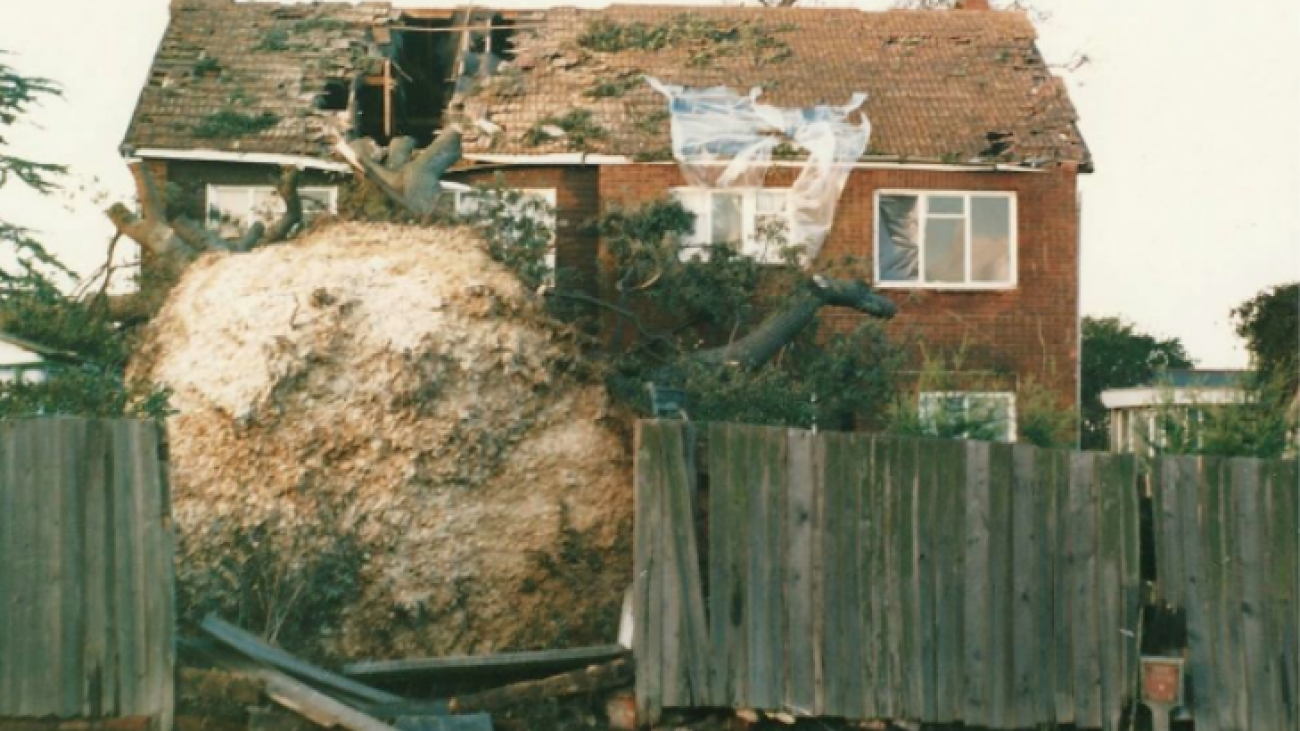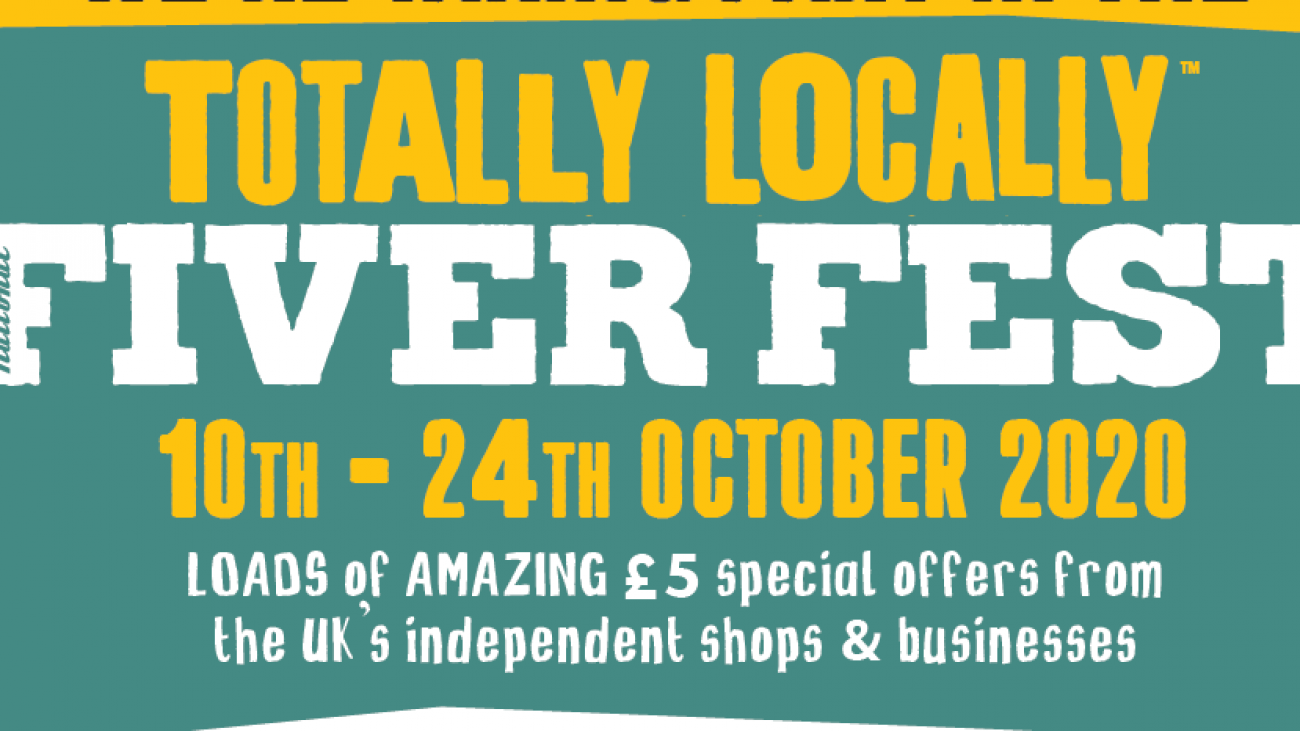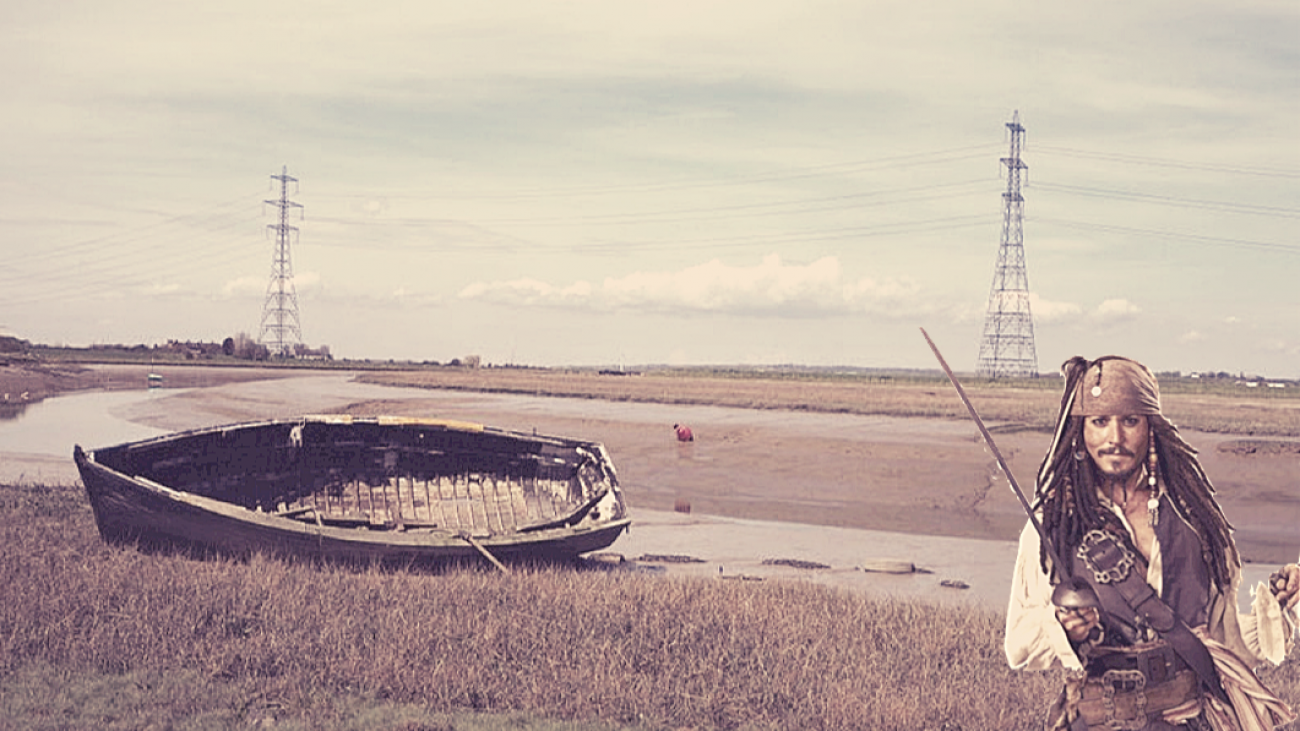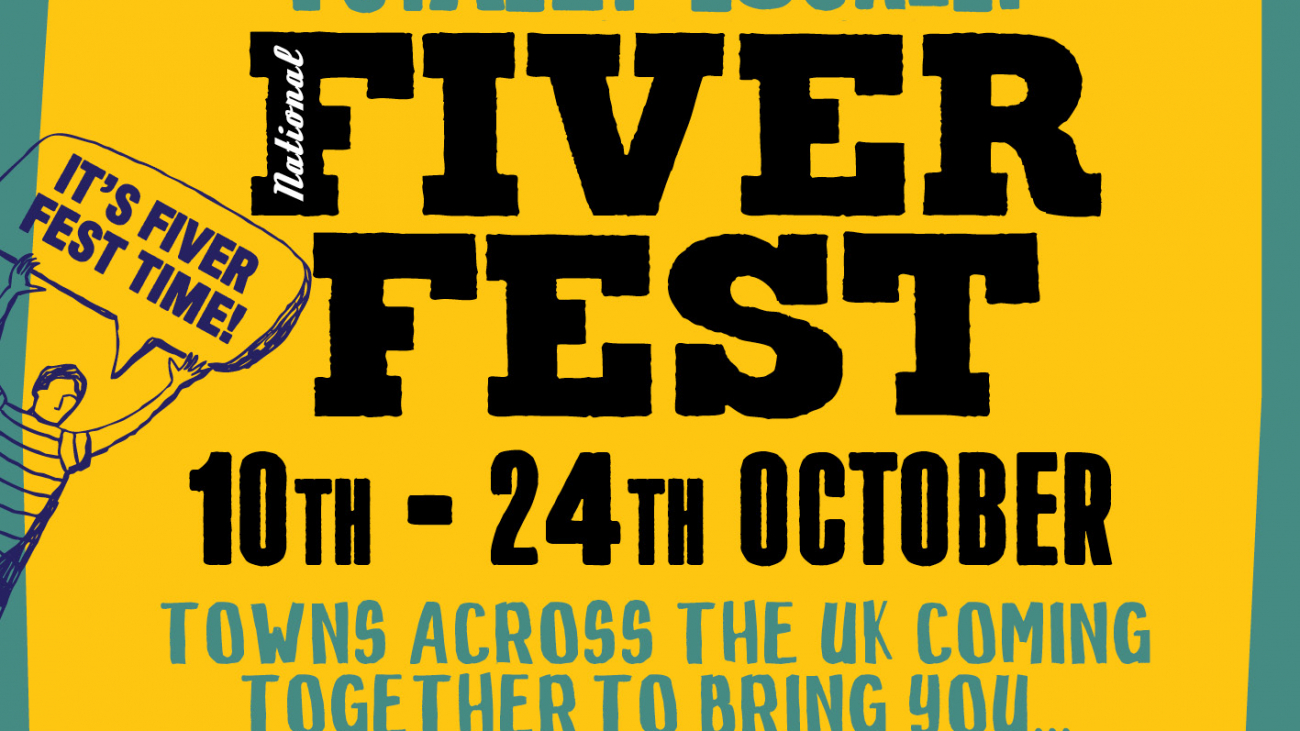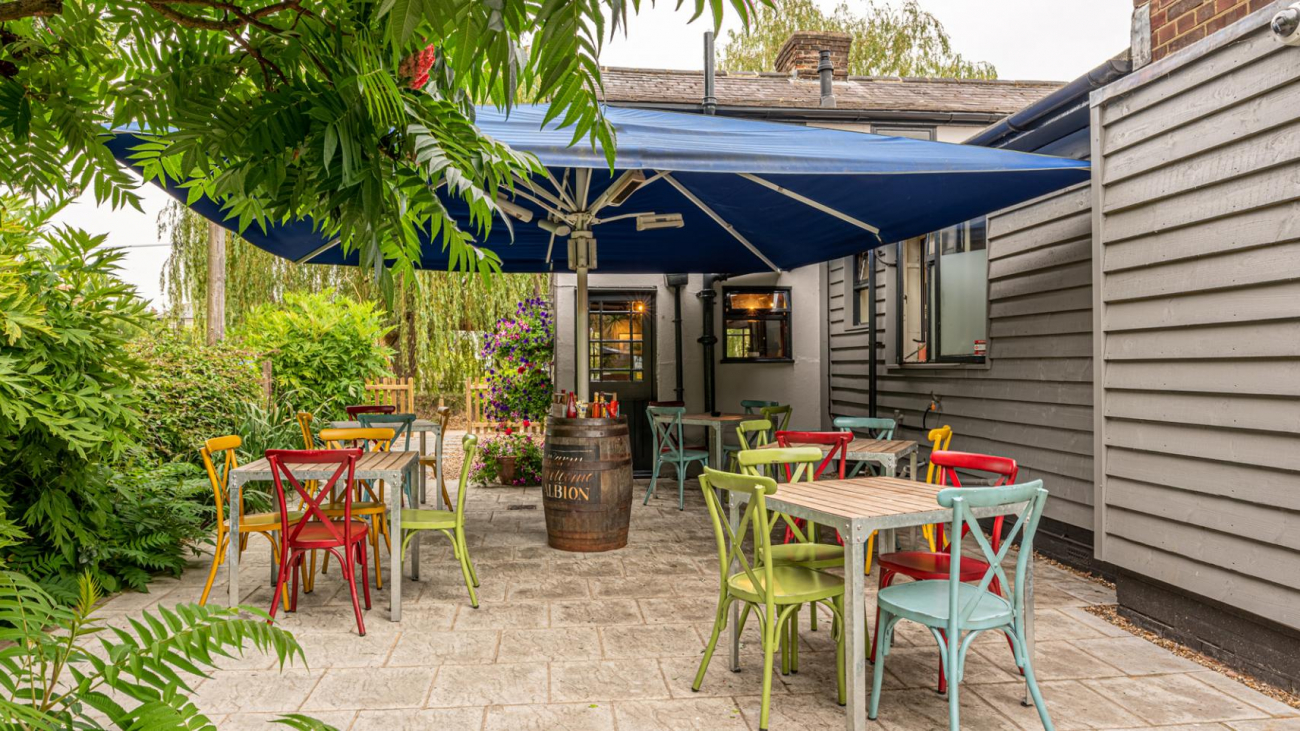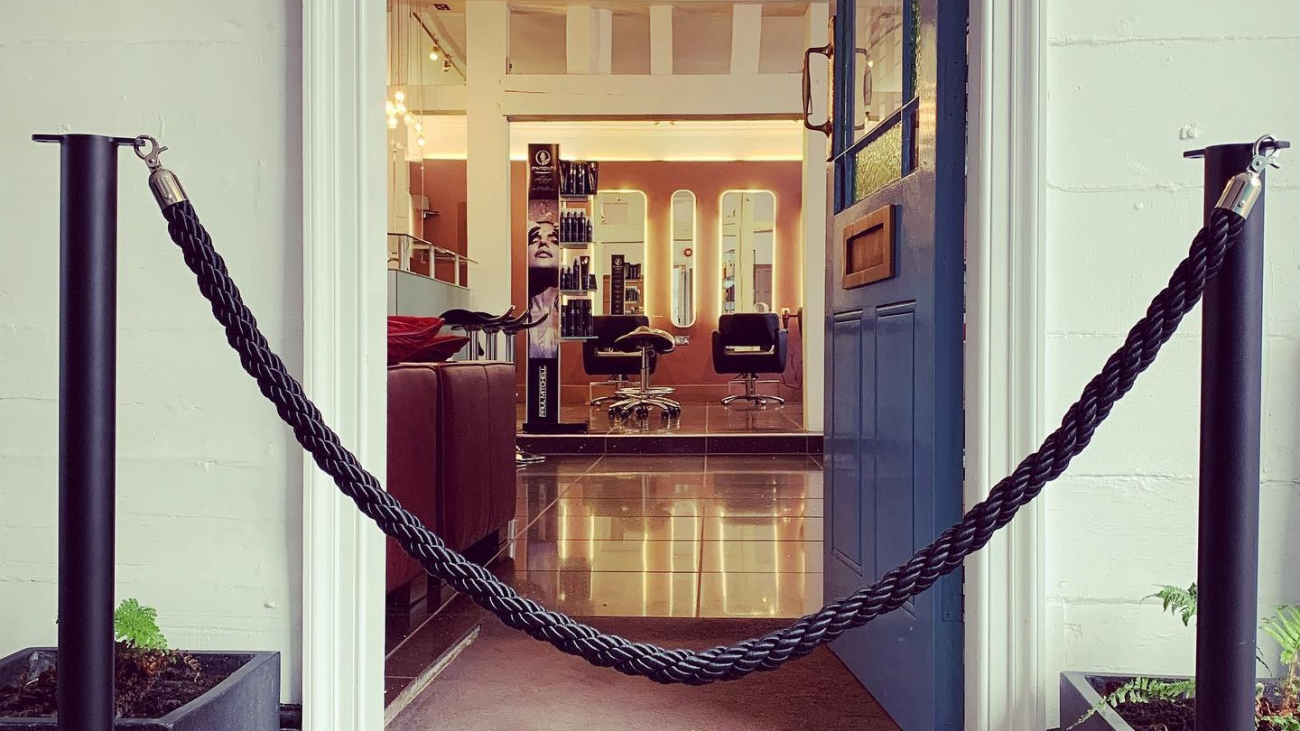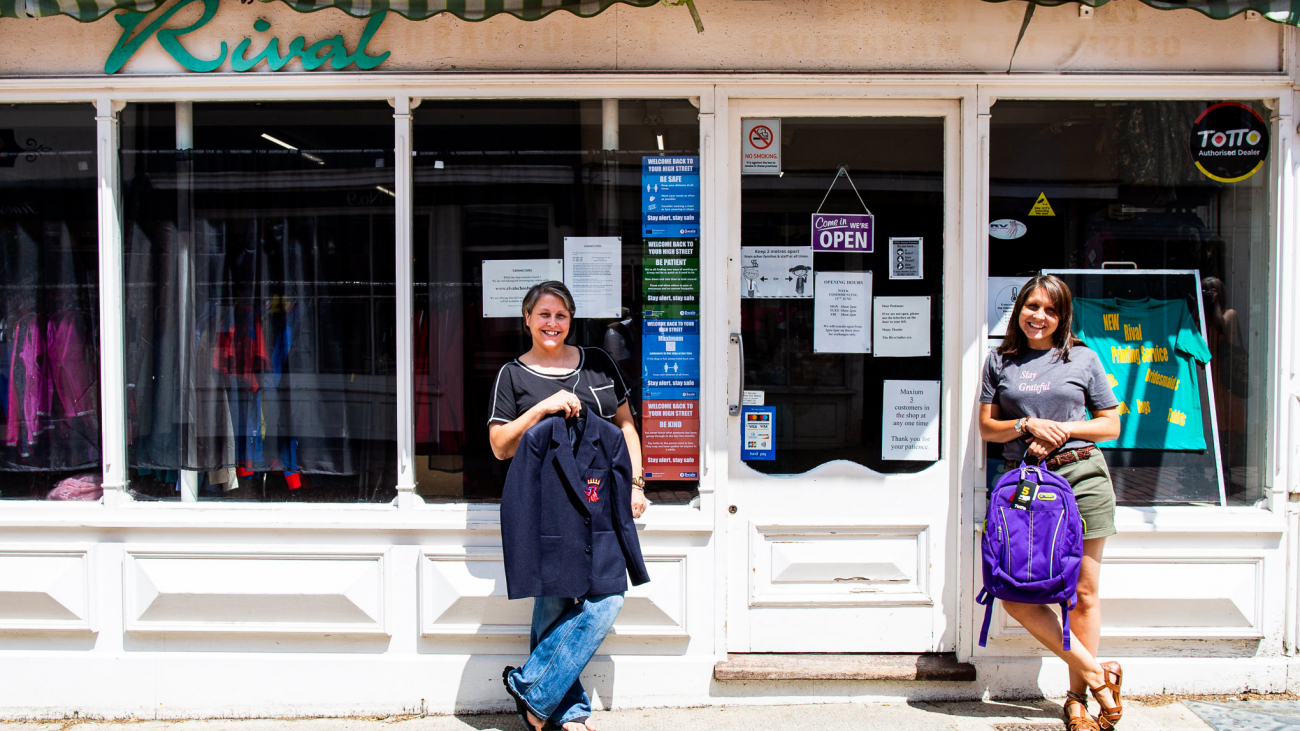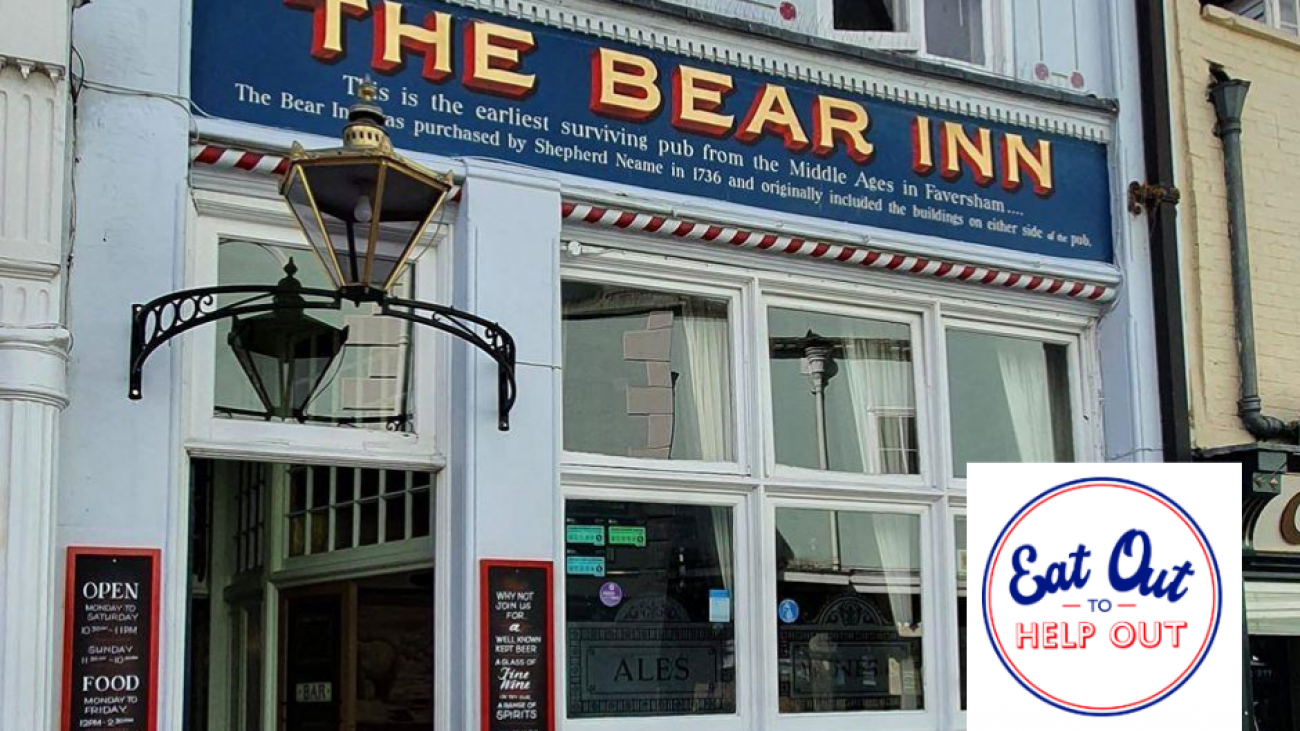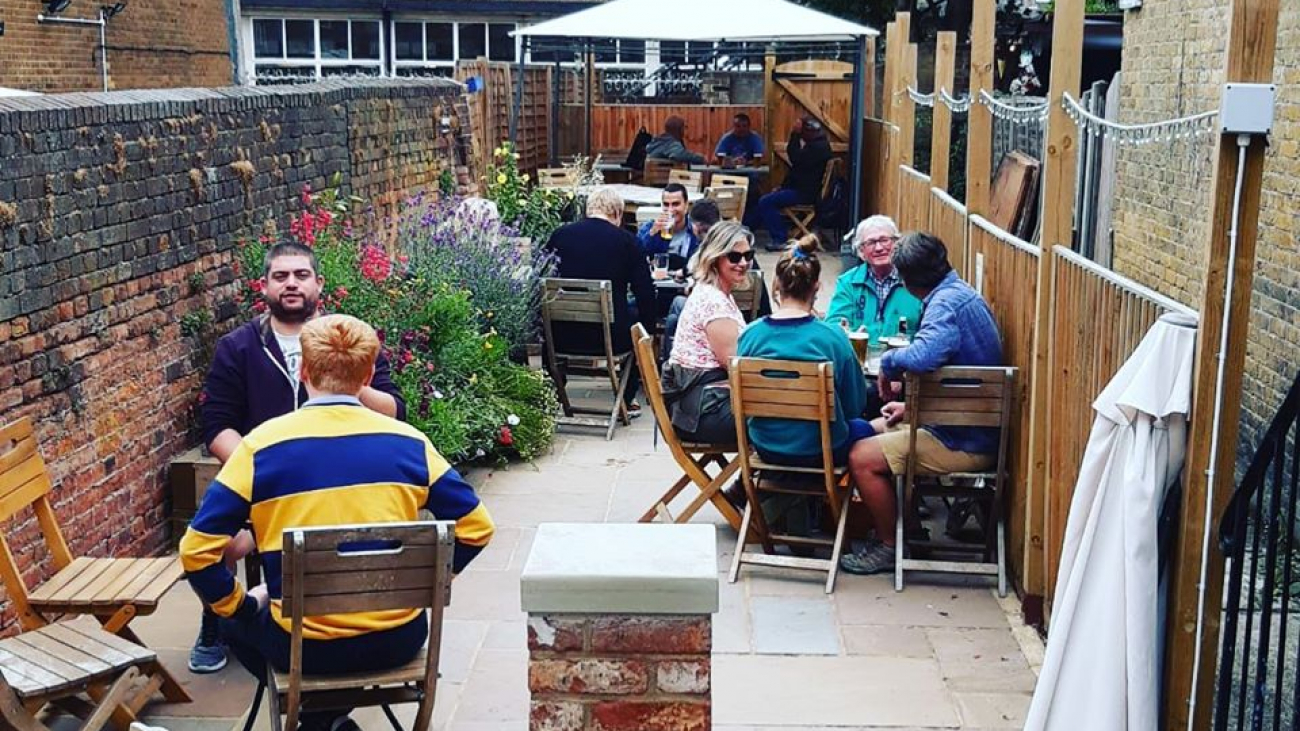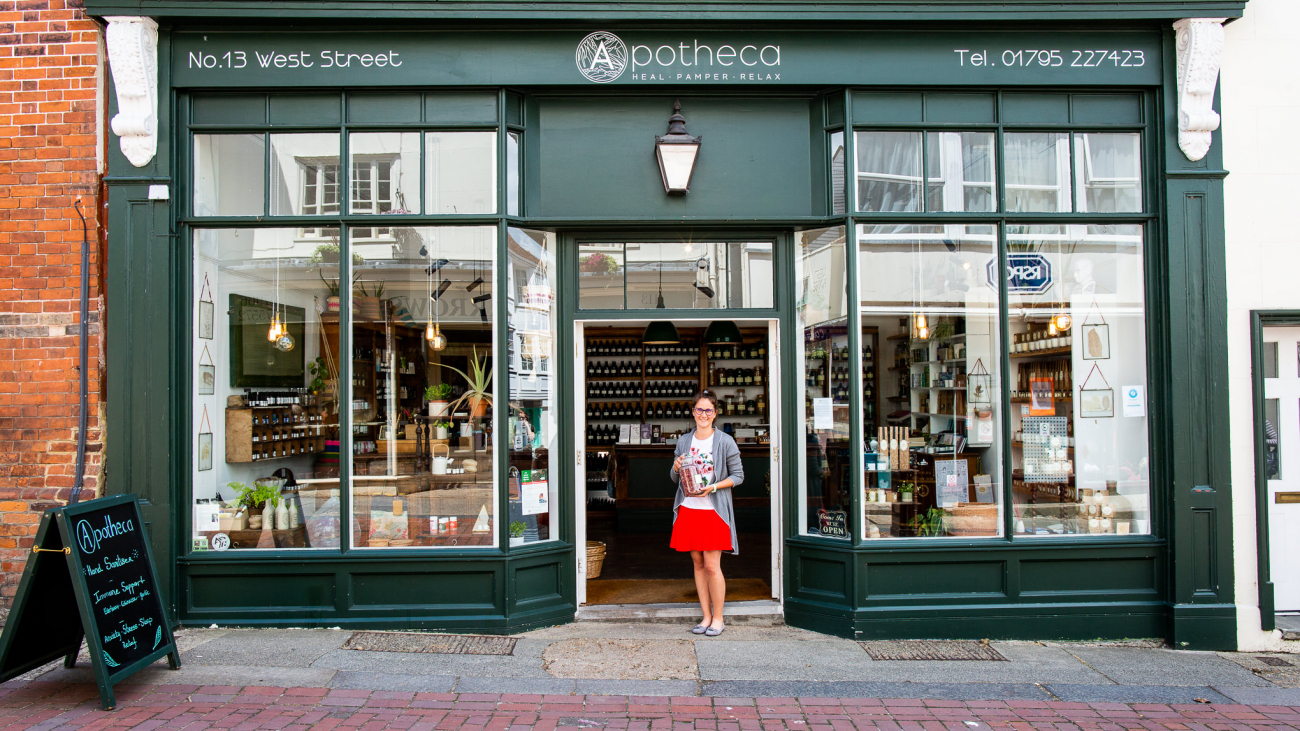How did the Great Storm of 1987 affect Faversham? Local resident Liz Jeffery, a teenager at the time, remembers that wild, windy weekend…
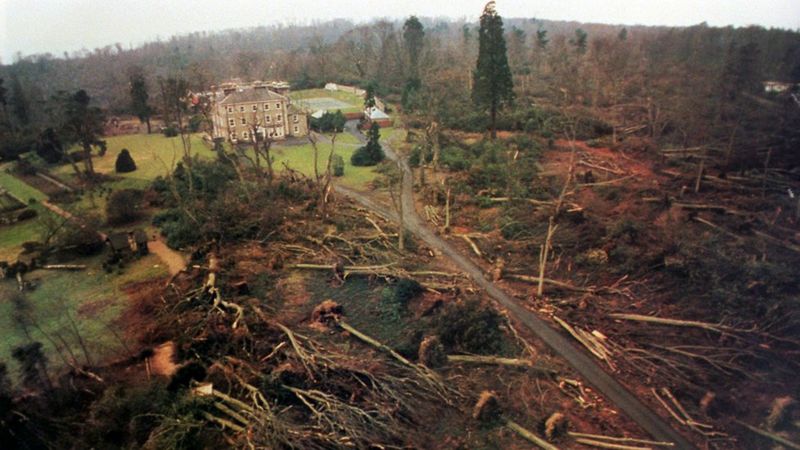
The Great Storm on 15 October 1987 was the worst storm to hit the South East of England for 300 years.
In just a few hours, hurricane-force winds as strong as 120mph took down an estimated 15 million trees – many that had been standing for centuries.
Telephone lines went down; water, electricity and gas supplies were cut off; miles of rail and road networks were blocked. The hurricane also had a more tragic consequence, claiming the lives of 18 people in England (several of those in Kent).
Despite it all, the storm also showed a community spirit in Faversham that’s still around, 33 years later. Here are my teenage memories of that fateful night…
No warning of what was to come
Thursday 15th October 1987 had been a typical autumn day. It had been raining for days, and that evening felt dull and dank.
Still, to the teenage me, Faversham Carnival was due to take place that weekend – and so the rain didn’t matter. Walking home from school, the sight of the Forrest Fair setting up on Faversham Rec was enough to lift spirits even more.
That evening was just like any other. I’d have probably called my friends, making plans to meet over the weekend. I’d have probably watched TV, including that now infamous weather report by Michael Fish in which he said: “Earlier on today, apparently, a woman rang the BBC and said she heard there was a hurricane on the way. Well, if you’re watching, don’t worry, there isn’t!”.
And then I’d have gone to bed as normal. Amazingly, given what went on to happen outside, my family and I slept pretty well that night.
That evening was just like any other. I’d have probably called my friends, making plans to meet over the weekend. I’d have probably watched TV, including that now infamous weather report by Michael Fish…
And then I’d have gone to bed as normal. Amazingly, given what went on to happen outside, my family and I slept pretty well that night.
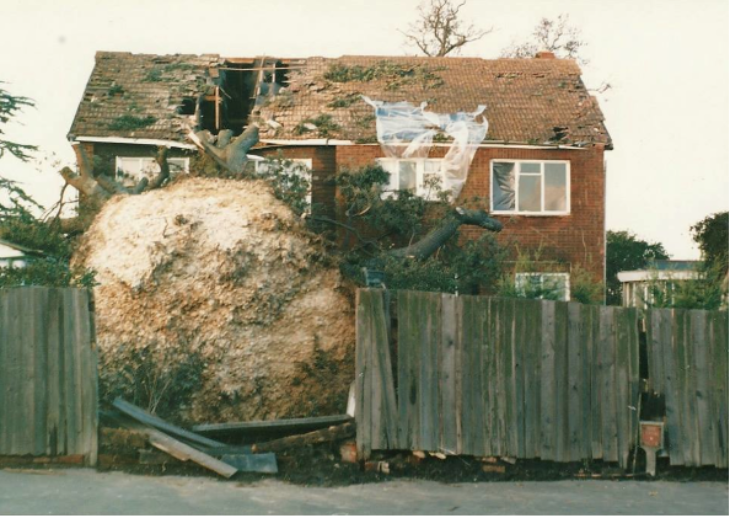
Early morning
At 5.30am my dad’s alarm clock went off as usual for work. But he only had to look out of the window to see something wasn’t right, and that it would be far too windy to cycle his normal route from Bramley Avenue to his job at BOC Transhield in Oare.
As he made his way by foot through our estate, he met the milkman on his rounds – and they chatted about how they must be mad working on such a morning.
Dad says that as he walked along the A2, it felt like trees were falling down all around him. He remembers watching a huge tree fall through the back of a house, its root ball almost as big as the property itself.
Turning the corner down into The Mall, he had roof tiles speeding past his head. Not surprisingly, at this point he decided to turn back for home!
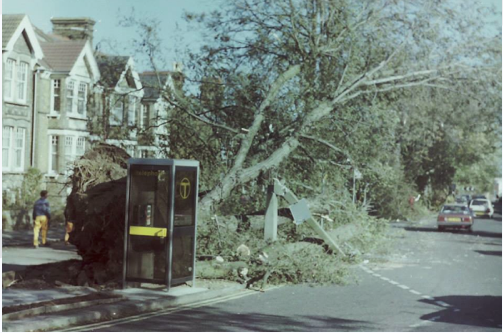
Waking up to scenes of devastation
When I woke up, along with the rest of my family, we tried to take stock of what had happened overnight.
Alongside feeling pretty excited about being off school that day, I noticed that our house was one of the lucky ones: the storm had taken off a few roof tiles but had otherwise untouched it.
But out in the garden, the fence was down – as were everyone else’s fences in our road. In fact, standing in the garden we had a clear view to the A2 in one direction, and the railway line in the other.
I also noticed the large leylandii hedge that had stood behind our house. The wind had lifted each individual tree up by its roots and hurled them at least 10m away.
Amazingly, our neighbour’s avary with its precious bird collection had made it through the night – something that our cat must have been disappointed about as it had spent the night on top of it.
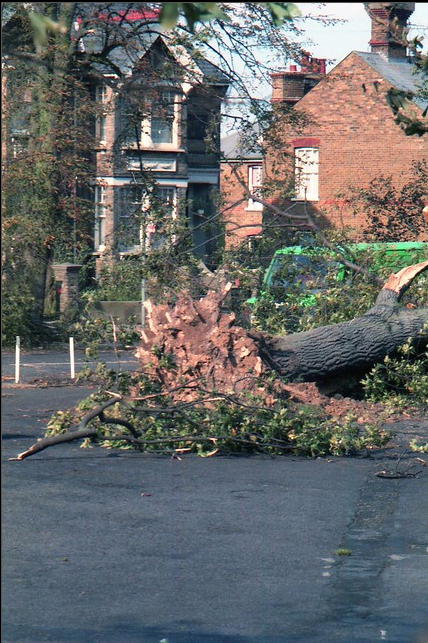
Cleaning up Faversham
Venturing out of our street to explore the town in the days afterwards, I noticed the devastation everywhere and it seemed like nowhere was left untouched. It was obvious that the town would face a huge clean up operation in the days and weeks to come.
Walls and fencing were down. Some roofs had no tiles left, and chimneys had collapsed. Windows were broken and so many cars damaged.
The fair they’d been setting up in the Rec for that weekend had ended up in the tennis court area – caravans and all. It was a miracle no one was killed during what must have been a terrifying night.
It was a miracle no one was killed during what must have been a terrifying night.
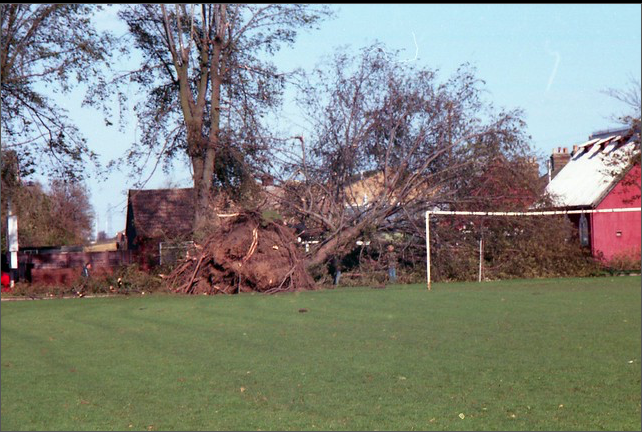
Trees, trees everywhere
And of course, there were trees lying everywhere – trees blown down or uprooted everywhere from the small residential streets to the Rec. The most important collection of trees locally – the National Fruit Collection at Brogdale – didn’t escape the devastation, either.
Some fruit trees were blown over, and others ripped from the ground. Although the team at Brogdale were able to pull many back into an upright position, the only way to save some precious varieties was by propagation (growing new plants from a branch or seed). Local records show that it was thanks to specialist expertise that these varieties survived – and Brogdale is still one of the largest fruit collections in the world.
Faversham community spirit
At home, we had no electricity for several days, and the phone lines were down for a week. Even my school was closed for a few weeks as the gym roof had blown off!
The devastation in the town had caused so much suffering, and it must have been hard for so many local residents – as elsewhere around the south of England and north of France.
Yet as a child with no responsibility, I have to admit I felt such freedom. We had huge fun running through each others’ back gardens, almost like we had a big private park to play in all day. It was a sad day when the adults started putting the fences back up and our playground had gone.
And there was real community spirit, too. We all had a reason to talk to strangers, everyone had a story to tell and everyone in the town offered a helping hand.
And there was real community spirit, too. We all had a reason to talk to strangers, everyone had a story to tell and everyone in the town offered a helping hand.
Friends helped other friends fix their cars, board up their windows and clear fallen trees from roads and driveways. The sound of chainsaws echoed around the streets all day, every day.
One neighbour had a gas cooker so cooked for everyone. We had a gas fire in our home so other neighbours without heating would come and warm up.
As we slowly rebuilt our surroundings, that sense of community carried on. And one act of community spirit bears fruit to this day. The trees lining Upper St Ann’s Road didn’t survive the storm, so one local resident replanted them.
Decades later, I can go and collect conkers from these horse chestnut trees with my own children thanks to that act of kindness. It’s the little thoughtful touches like this that makes Faversham such a special community to be part of – even in the toughest times.
